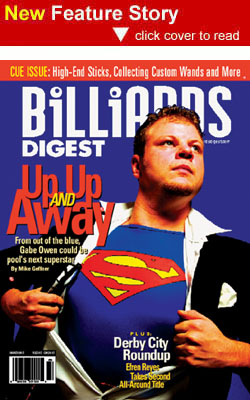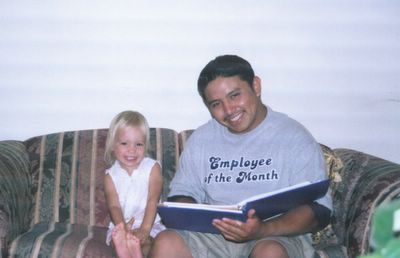if you would thrive, be up by five;
for there is health, and certain wealth
when at the plough, or milking a cow.
pork and beans make muscles strong
something farmers seek.
it is a dish to make life long,
when cooked but once a week.
a smokey chimney may be cured,
a scolding woman not endured;
a farmer’s wife, like cream or curd,
is to be seen but seldom heard.
of all the crops a farmer raises,
or capital employs,
none can bring back such comforts and praises,
as a crop of girls and boys.
Because regular wagoners liked their whiskey and habitated the many taverns and inns along the freight routes, it was customary to drink evenings after a hard day on the road. Regulars often charged drinks at taverns and innkepers kept the record on a sheet of paper or a slate at the bar. If the teamster bought a pint, he would record the letter ”P" after the driver’s name, if it happened to be a quart, he wrote “Q”. when several “P’s” and “Q’s” were after a person’s name the barkeeper would remind him to “mind your P’s and Q’s.”
Wagoners not only enjoyed strong drink but also strong tobacco, mostly cheap cigars, which resulted in the creation and production of a roll-up cigar which sold at four or five for a penny and became know as the Conestoga cigars or “Stogies.”. H.L. Fisher’s poem Wagoning aptly describes the Pittsburgh Stogie, “Mid clouds of cheap tobacco smoke’ think, dark and strong enough to choke.”
Taken from: Pennsylvania Dutch Folklore, 1965
Monday, October 24, 2005
Friday, October 14, 2005
Saturday, October 08, 2005
Columbusland?
From whence cometh the name of our continent, dear friend? Dost thou knowest? I shall grant that Sr. Columbus was anticipating the discovery of a western route to India, not an entirely new continent.
Ah, the power of Mr Gutenburg.
Ah, the power of Mr Gutenburg.
Friday, October 07, 2005
Real Horsepower
It is of interest to compare the efficiency of horses, in converting into useful work the nutrients they consume, with the efficiency of farm tractors or other engines. In Missouri experiments when horses worked at the usual rates, they converted into actual work about 20 to 25% of the energy they expended during the time they were working. The rest of the energy is converted into heat and is lost, so far as useful work is concerned.
However, to gain a true idea of the efficiency of the horse as a source of power, we must compute his over-all efficiency for the entire day of 24 hours. this is the percentage of the total or gross energy in his daily feed, which he is able to convert into useful work. Based on the amount of feed required per day, a 1500 lb horse working 8 hours a day at a rate of 1 horse power will have an over all efficiency of about 8.9%.
However, farm horses do not work every day, though they must eat every day. There fore the over all efficiency for the entire year is much lower than for a 24 hour period in which the horse does a good day’s work. On the average, the yearly over all efficiency of farm horses, which usually work only about 800 to 1000 hours a year, is about 2 to 3%.
In tests of farm tractors by the University of Nebraska, gasoline tractors converted 13%, on the average, of th4e energy of the gasoline into the work of draft. This is probably higher than the efficiency of the average tractor, for these tractors were handled by experts and were in ideal mechanical condition for these tests. (Diesel tractors have a considerably higher mechanical efficiency than gasoline tractors.)
In comparing this efficiency of 13% for tractors with the efficiency of 8.9% for horses in converting the energy of their feed into draft when working a full day, we must consider the following: The horse is supplied with feed in crude form, and a considerable part of it is indigestible and therefore of no value in the production of work. The gasoline or kerosene tractor, however, is not supplied with crude fuel, but with highly refined fuel from which the waste portions have been removed. Moreover, the horse repairs his body continuously, while the tractor cannot replace the daily wear of its parts.
Feeds and Feeding (1954) by Frank B. Morrison
However, to gain a true idea of the efficiency of the horse as a source of power, we must compute his over-all efficiency for the entire day of 24 hours. this is the percentage of the total or gross energy in his daily feed, which he is able to convert into useful work. Based on the amount of feed required per day, a 1500 lb horse working 8 hours a day at a rate of 1 horse power will have an over all efficiency of about 8.9%.
However, farm horses do not work every day, though they must eat every day. There fore the over all efficiency for the entire year is much lower than for a 24 hour period in which the horse does a good day’s work. On the average, the yearly over all efficiency of farm horses, which usually work only about 800 to 1000 hours a year, is about 2 to 3%.
In tests of farm tractors by the University of Nebraska, gasoline tractors converted 13%, on the average, of th4e energy of the gasoline into the work of draft. This is probably higher than the efficiency of the average tractor, for these tractors were handled by experts and were in ideal mechanical condition for these tests. (Diesel tractors have a considerably higher mechanical efficiency than gasoline tractors.)
In comparing this efficiency of 13% for tractors with the efficiency of 8.9% for horses in converting the energy of their feed into draft when working a full day, we must consider the following: The horse is supplied with feed in crude form, and a considerable part of it is indigestible and therefore of no value in the production of work. The gasoline or kerosene tractor, however, is not supplied with crude fuel, but with highly refined fuel from which the waste portions have been removed. Moreover, the horse repairs his body continuously, while the tractor cannot replace the daily wear of its parts.
Feeds and Feeding (1954) by Frank B. Morrison
Stricly American
About half of all the American weather books start out with “that famous Mark Twain saying” that “everyone talks about the weather, but nobody does anything about it.” Actually this was not a Twainism at all, but was said by a man named C.D. Warner. Twain quoted Warner in a speech, and the saying became known as one of mark Twain’s form the time on. Twain did, however, say, “If you don’t like the weather in New England, just wait a few minutes,” and that proverb is most typical of American weather talk. Benjamin Franklin, who said, “some are weatherwise, some are otherwise,” also said, “Know the signs of the sky and you will for the happier be.” There seems to be something typically rural American about weather observation: here, instead of hello, one most often nods and says, “Nice day today.” It has been said that the average American can’t start a conversation without referring to the weather first. It is natural, then , that there should also be a good store of American weather folklore.
Being aware that most early-American customs were brought intact from overseas, a student of folklore might wonder how much genuine American folklore there can be. To answer this, I quote from a letter written in 1762 from a father to his son wo was preparing a trip to these shores.
“The greatest differences here,” he wrote, “ you shall find in the weather. You shall need the stoutest of clothing. The sky and its signs are the seasonal changes are most unlike those to which we are accustomed.”
Folklore of American Weather by Eric Sloane
Being aware that most early-American customs were brought intact from overseas, a student of folklore might wonder how much genuine American folklore there can be. To answer this, I quote from a letter written in 1762 from a father to his son wo was preparing a trip to these shores.
“The greatest differences here,” he wrote, “ you shall find in the weather. You shall need the stoutest of clothing. The sky and its signs are the seasonal changes are most unlike those to which we are accustomed.”
Folklore of American Weather by Eric Sloane
Give and Take
It was Desmond Tutu who said, "When the missionaries came to Africa, they had the Bible and we had the land. They said, 'Let us pray.' We closed our eyes. When we opened them, we had the Bible and they had the land."
Wednesday, October 05, 2005
Ya ain't much if ya ain't Dutch
"From an objective point of view, you can say now that the lives of babies are in danger,"
If you really want to know the context, go here on an empty stomach.
If you really want to know the context, go here on an empty stomach.
Subscribe to:
Posts (Atom)




